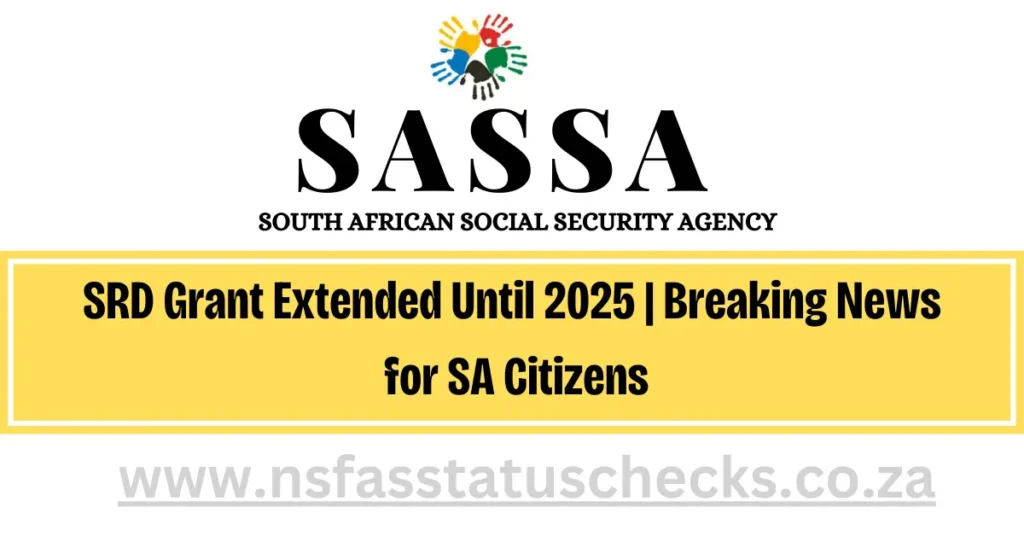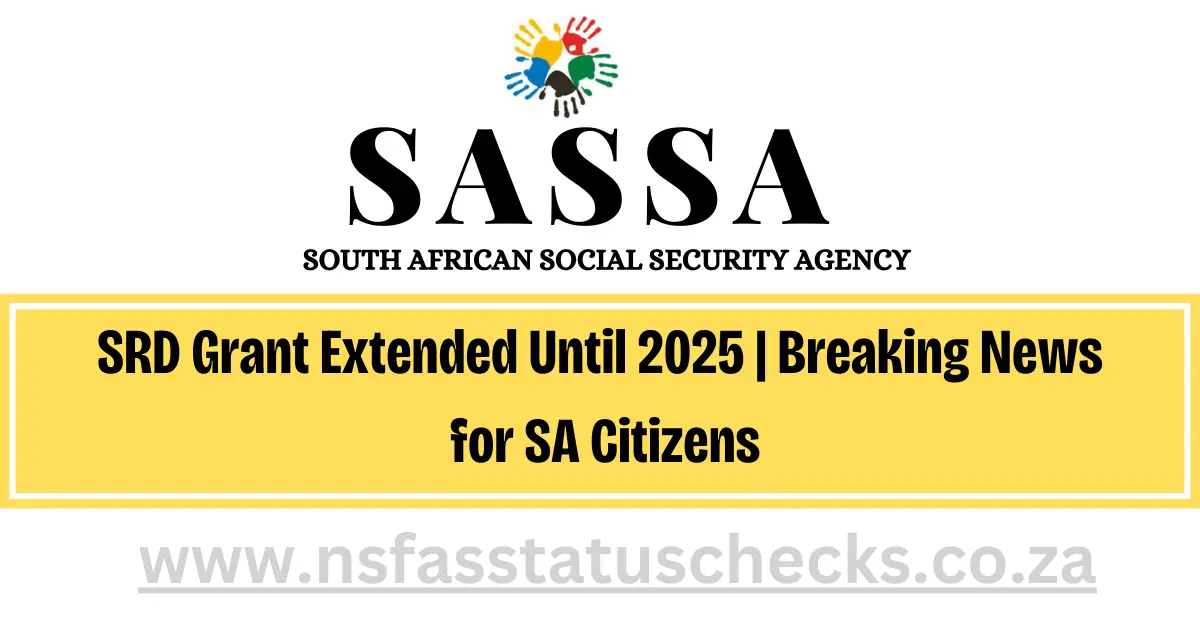The SRD (Social Relief of Distress) Grant has been extended until 2025 by the South African government in response to the economic challenges exacerbated by the COVID-19 pandemic. This extension comes as a relief to many individuals and families who continue to face financial difficulties.

Reasons for SRD Grant Extended
The decision to extend the SRD Grant was motivated by the continued impact of the COVID-19 pandemic on the economy and the livelihoods of South African citizens. Many individuals and families are still struggling to make ends meet, and the extension of the grant will provide them with much-needed relief.
Impact of the SRD Grant Extension
The extension of the SRD Grant is expected to have a significant impact on the lives of South African citizens. It will provide them with a source of income to meet their basic needs, including food, shelter, and healthcare. Additionally, it will help stimulate economic activity by putting money into the hands of those who are most likely to spend it.
How to Apply for the SRD Grant
To apply for the SRD Grant, individuals can visit the official website of the South African Social Security Agency (SASSA) and fill out the online application form. Applicants will need to provide proof of identity, residence, and income to qualify for the grant.
Eligibility Criteria for the SRD Grant
To be eligible for the SRD Grant, applicants must be South African citizens or permanent residents who are unemployed or unable to work due to the pandemic. They must also meet certain income and asset criteria set by the government.
Benefits of the SRD Grant Extension
The extension of the SRD Grant will provide numerous benefits to South African citizens. It will help alleviate poverty and reduce inequality by providing financial support to those who need it most. Additionally, it will help stimulate economic growth by putting money into the hands of consumers.
Challenges Faced by the SRD Grant Extension
Despite its many benefits, the extension of the SRD Grant also poses some challenges. One of the main challenges is ensuring that the grant reaches those who need it most and that it is not subject to fraud or abuse. Additionally, the government will need to ensure that the grant is sustainable in the long term.
Government’s Commitment to Supporting Citizens
The extension of the SRD Grant is a clear demonstration of the South African government’s commitment to supporting its citizens during this challenging time. It shows that the government is willing to take decisive action to help those in need and to ensure that no one is left behind.
Public Reaction to the Extension
The extension of the SRD Grant has been met with mixed reactions from the public. While many have welcomed the decision, others have raised concerns about the long-term sustainability of the grant and its impact on the economy. You can also find out if SASSA 350 pays on weekends by visiting this link.
Conclusion
The extension of the SRD Grant until 2025 is a positive development that will provide much-needed support to South African citizens facing financial difficulties. It demonstrates the government’s commitment to supporting its citizens during this challenging time and will help alleviate poverty and reduce inequality.
FAQs
Can I apply for the SRD Grant if I am currently employed but not receiving a regular income?
No, the SRD Grant is intended for individuals who are unemployed or unable to support themselves due to the pandemic.
How long will the SRD Grant be extended?
The SRD Grant will be extended until 2025, providing long-term support to South African citizens.
I am a refugee living in South Africa. Am I eligible for the SRD Grant?
Yes, refugees registered on the Home Affairs system are eligible to apply for the SRD Grant.
How long will it take to receive my SRD Grant once I have submitted my application?
The processing time for SRD Grant applications varies, but you should receive a response from SASSA within a few weeks of submitting your application.
Can I use the SRD Grant to pay off debts or bills?
The SRD Grant is intended to provide financial relief for essential expenses such as food, clothing, and medication. It should not be used to pay off debts or bills.
